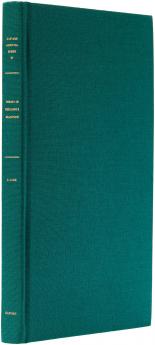This Book is Out of Stock!
English
Hardback
₹4319
₹4450
2.94% OFF
(All inclusive*)
Delivery Options
*COD & Shipping Charges may apply on certain items.
Review final details at checkout.
Looking to place a bulk order? SUBMIT DETAILS
About The Book
Description
Author
The anonymous pre-Gaṅgeśa Navya-Nyāya treatise Upādhidarpaṇa (UD) deals exclusively with the so-called upādhi a key concept in the Navya-Nyāya theory of inference. The present volume contains the first published edition and translation of the only extant manuscript of the UD. Numerous notes have been added to the translation in order to elucidate the contents and to give a clue to the historical context as regards authors works and philosophical doctrines that are referenced in the UD. Moreover an extensive introductory chapter provides new insights into relations between the Navya-Nyāya doctrine of upādhi and modern logical theories such as John L. Pollock’s theory of defeasible reasoning and property theories especially property adaptations of well-founded and non-well-founded set theories.. A very intriguing aspect of the UD is the author’s attempt to define all candidate upādhis by means of a “general defining characteristic” (sāmānyalakṣaṇa) which is a property of itself. He advocates a non-well-founded property concept and distances himself from what is communis opinio in Nyāya viz. that self-dependence (ātmāśraya) is a kind of absurdity. No such discussion concerning the problem of foundation in the Navya-Nyāya logic of property and location is to be found in the later Upādhivāda of Gaṅgeśa’s Tattavacintāmaṇi.
*COD & Shipping Charges may apply on certain items.
Review final details at checkout.
₹4319
₹4450
2% OFF
Hardback
Out Of Stock
All inclusive*
Details
ISBN 13
9780674273412
Publication Date
-15-02-2022
Pages
-320
Weight
-512 grams
Dimensions
-177.8x254x20.72 mm











